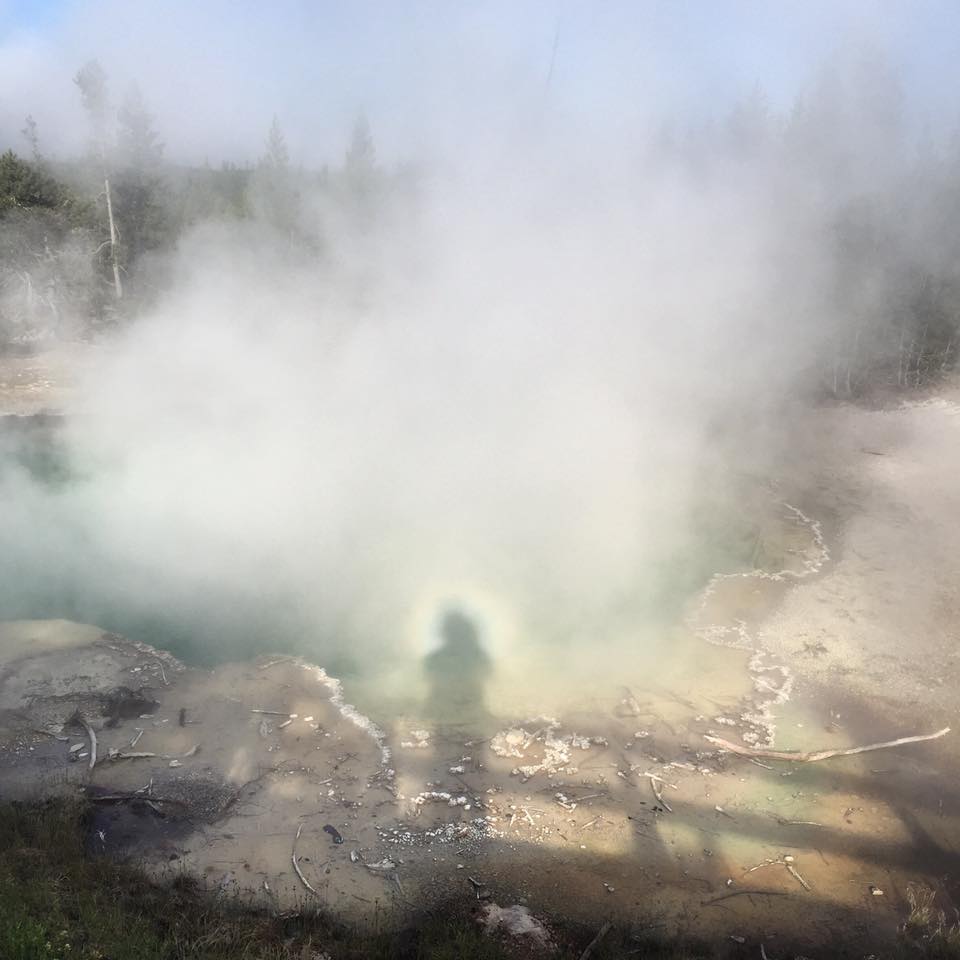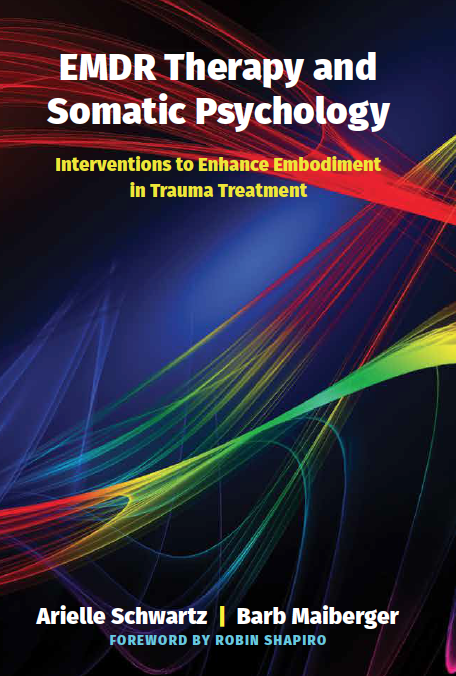
Healing from trauma does not only involve changes in your brain. Rather, it is equally important to attend to the impact of traumatic events on the body. When it comes to healing from any trauma, it is important to recognize that the body holds memories of what happened. Your body provides tremendous feedback about the impact that traumatic events. You might notice how you carry tension in your body or how your posture might be a reflection of your emotions.
As a result of challenging life experiences, you might notice that you close off your chest to protect your heart from events that occurred years ago. Perhaps, you continue to freeze or collapse in response current events that trigger feelings related to your traumatic past. Or, you might notice how trauma from your past obstructs your willingness to look someone in the eyes, stand up tall, or speak with confidence.
Importantly, yourbody does not just hold the memory of what happened—your body also holds the memory of what wanted to happen. This is an important key to healing from trauma. For example, if you weren’t able to run away from a dangerous situation, you might feel the impulse to move your legs when you think about that situation now. Or, if you weren’t able to protect yourself from an abuser, you might feel an impulse to push through your arms.
“Somatic therapy in trauma treatment allows you to release long-held tension from your body. As a result, you have an opportunity to discover a greater sense of freedom in your body and mind. Your body gives you feedback about when the events of the past no longer define your life in the present. As a result, you reclaim your resilience.”—Dr. Arielle Schwartz

Therapeutic treatment for trauma occurs in stages. The first stage helps you develop resources to handle challenging emotions, disturbing symptoms, and distressing memories. Perhaps you feel stuck in high alert, unable to relax, or locked down in exhaustion. These symptoms indicate that you need resources to stabilize your symptoms and help you restore a sense of safety in the here and now. Resources are the people and personal practices that help you to feel confident, calm, clear, grounded, empowered, and supported.
The second stage of trauma treatment invites you to reprocess the emotions, sensations, memories, and beliefs associated with your traumatic experiences. Most often this requires a supportive relationship with a psychotherapist who is trained in working with trauma. By processing traumatic events, you free yourself from the associated negative beliefs, emotions, somatic experiences, and behaviors.
The third stage of trauma recovery focuses on integrating positive changes into your overall sense of self. This involves reflecting upon the meaning that you make of your unique life experiences. You can take the time to allow a positive, embodied sense of yourself to grow as this will help to propel you forward in your life.

Healing from trauma involves increasing your awareness of tension patterns in your body. For instance, you might notice that you carry excessive tension in your muscles that make it difficult to relax. Once you aware of your somatic experience, then you can start to experiment with small changes in your breath, posture, eye contact, and body movement. For example, if you tend to keep your arms in tight to your body, you might experiment with how it feels to take up more space. Or, you might explore lengthening your spine and lifting your gaze and notice how these subtle changes impact your sense of self.
When you identify a traumatic event, you can learn to mindfully explore your somatic experience. As a result, you might begin to notice various movement impulses. You might notice trembling or shaking in your arms and legs as you release long-held tension from your body. Within somatic psychology, this process of discharging tension from the body is referred to as sequencing. In sequencing, you aim to allow feelings to move all the way through your body out your arms or legs until you feel a sense of relief or satisfaction.
It can take time to learn to trust your instincts and intuition; however, this process can eventually help you find resolution in body and mind. Explore following sensations that help you to unwind tension. For example, if you notice that you have tension in your jaw, you might exaggerate your sensations by scrunching your face tightly and then opening your jaw into a wide yawn. Or, if you notice that you tend to hunch your shoulders, you could follow that impulse until you curl into a small ball. Eventually, you can allow yourself to freely associate, noticing any thoughts, memories, or images that arise as you honor your sensations and movement impulses.

Sometimes the most persistent symptoms of trauma are connected to events for which you have no clear memory. Sometimes this is because traumatic event(s) happened in the first few years of life from before memory and language systems of the brain are fully developed. Or, it can be difficult to remember events that occurred later in life because traumatic stress can impair the memory systems in the brain.
It can be difficult to talk about or describe traumatic memories; especially if you have symptoms of dissociation.However, it is important to know thatyou can heal from traumatic events even if you cannot recall all of the details of traumatic events. Rather than telling a story about your experience, you learn to describe your sensations and attend to the associated emotions. For instance, you might use words like tingly, hot, dull, or heavy, or sharp. Or, you might notice areas of numbness. Now, the task is to slowly turn toward dissociative symptoms or the experience of numbness. Notice what happens as you stay committed to repairing this disconnection with yourself.
The goal of therapy is not memory retrieval; rather, the goal is trauma recovery in which you actively distinguish the past from the present. You heal as you focus on the choices available to you in your life now.

Having a history of trauma requires a slow, gentle approach to befriending the body. Often, working with a therapist is instrumental to any embodiment practice because habitual somatic patterns can be difficult to recognize; they are fundamentally integrated into the fibers of our identity. A somatically trained therapist can offer a compassionate reflection of your embodied self-expression.
In addition, it is important to see somatic therapy in trauma treatment as part of comprehensive and integrative approach to healing that also involves reprocessing the narrative, images, and beliefs associated with the event. An integrative model brings together Somatic Psychology, EMDR Therapy, Relational Therapy, Part Work Therapies, and other mind-body therapies.
When entering the transformational work of working through traumatic events, it is important to have the knowledge that change is possible. Talking about difficult memories takes courage. You might ask, what is the point of rehashing the past or stirring up these painful feelings. However, rest assured, working through traumatic memories ultimately allows you to feel freedom in your body and gives you a greater sense of choice about the narrative that defines your past and your future.

Connect to this post? The EMDR Therapy and Somatic Psychology book, is available on Amazon! Click here to increase your toolbox for healing. An integrative and effective approach to healing from trauma.

The Complex PTSD Workbook is available on Amazon! Click here to check it out.

Dr. Arielle Schwartz is a licensed clinical psychologist, wife, and mother in Boulder, CO. She offers trainings for therapists, maintains a private practice, and has passions for the outdoors, yoga, and writing. Dr. Schwartz is the author of The Complex PTSD Workbook: A Mind-Body Approach to Regaining Emotional Control and Becoming Whole (Althea press, 2016) and co-author of EMDR Therapy and Somatic Psychology: Interventions to Enhance Embodiment in Trauma Treatment (Norton, 2018). She is the developer of Resilience-Informed Therapy which applies research on trauma recovery to form a strength-based, trauma treatment model that includes Eye Movement Desensitization and Reprocessing (EMDR), somatic (body-centered) psychology and time-tested relational psychotherapy. Like Dr. Arielle Schwartz on Facebook, follow her on Linkedin and sign up for email updates to stay up to date with all her posts.

Arielle Schwartz, PhD, is a psychologist, internationally sought-out teacher, yoga instructor, and leading voice in the healing of PTSD and complex trauma. She is the author of five books, including The Complex PTSD Workbook, EMDR Therapy and Somatic Psychology, and The Post Traumatic Growth Guidebook.
Dr. Schwartz is an accomplished teacher who guides therapists in the application of EMDR, somatic psychology, parts work therapy, and mindfulness-based interventions for the treatment of trauma and complex PTSD. She guides you through a personal journey of healing in her Sounds True audio program, Trauma Recovery.
She has a depth of understanding, passion, kindness, compassion, joy, and a succinct way of speaking about very complex topics. She is the founder of the Center for Resilience Informed Therapy in Boulder, Colorado where she maintains a private practice providing psychotherapy, supervision, and consultation. Dr. Schwartz believes that that the journey of trauma recovery is an awakening of the spiritual heart.
Beyond Trauma — A Guided Mind-Body Journey of Resilience – (September 20, 2024 – September 22, 2024)
Applied Polyvagal Theory in Yoga—An Immersive Therapeutic Weekend (June 21st & 22nd, 2024)